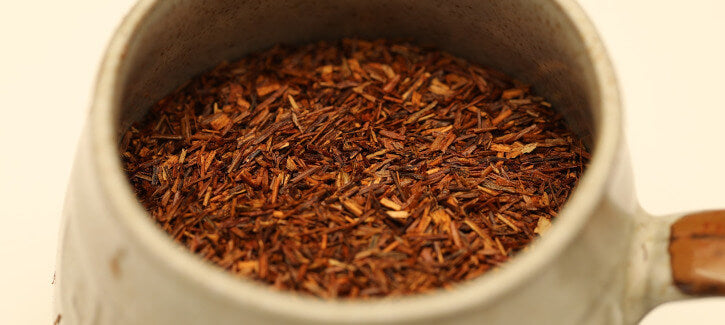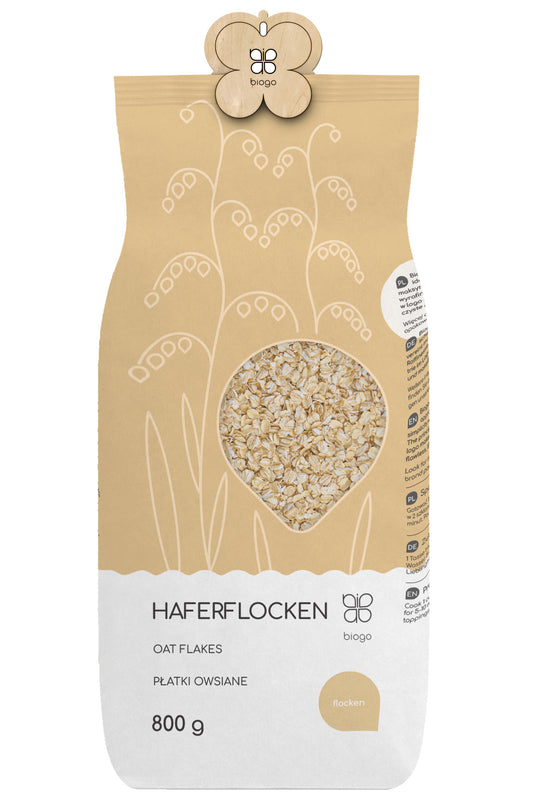Although rooibos is commonly referred to as "red tea," it is not systematically related to the tea plant (Camellia sinensis). In fact, the dried material consists of cut, fermented, and dried stems and leaves of the rooibos (Aspalathus linearis), which does not naturally occur in Asia, but in the rocky areas of the Cederberg Mountains in southern Africa.
Difficult climatic conditions and the type of soil in which the plant matures determine the high content of valuable substances, which can be regularly supplied to the body in the form of a warm infusion. Here are a few reasons why rooibos tea should be consumed as often as possible.
Why should you drink Rooibos tea ?
Rooibos tea has a strong reputation as a good coffee substitute. In fact, the infusion is non-stimulating because it contains no caffeine, making it suitable for daily brewing and also suitable for pregnant women, the elderly, and even children. The beverage only gained widespread popularity a little over a century ago, but the people of South Africa have valued the health-promoting properties of rooibos for millennia and used it in traditional medicine.
It is important to know that Rooibos tea is especially rich in powerful antioxidants (quercetin, luteolin and rutin), which bring many benefits to the entire body, such as:
- Protection of cells from free radicals and oxidative stress;
- Strengthening the immune system;
- Rooibos tea has a positive effect on the functioning of the digestive system;
- Cardiovascular support;
- Drinking rooibos regularly also helps regulate female hormones;
- Support for the skin, protected from the effects of premature aging.
The antioxidant effect of rooibos is due to the presence of flavonoids. The most valuable among these, however, is aspalathin, which can only be supplied to the body through rooibos tea. Rooibos extract (especially unfermented) is superior to green or red tea in this regard.
Rooibos tea is helpful for weight loss, although it doesn't directly contribute to fat burning. The compounds contained in the tea have a diastolic effect, helping to relieve smooth muscle tension, which can provide relief from indigestion or menstrual pain.
Rooibos - tea for daily sipping
Rooibos is perfect for everyday drinking, interchangeable with coffee, tea, and herbal teas. Its non-irritating and delicately bitter flavor make it an excellent option for little ones and for evenings. Rooibos tea is rich in minerals—primarily magnesium, potassium, and sodium, but it also contains a wide range of other micronutrients.
Chilled water is therefore a good substitute for pure water; it hydrates the body much more effectively. Unlike tea, when brewing rooibos, it's best to soak the dried leaves in water for up to 10 minutes. This produces an aromatic, dark amber infusion that can be freely varied with your favorite ingredients or enjoyed neat.
Like many hydrosols and herbal decoctions, rooibos can also be used externally. Chilled rooibos tea is perfect as a tonic for daily skin cleansing. It is well-suited for the care of acne-prone and discolored skin, as well as dry and mature skin.
THE PUBLISHER'S CHOICE
Dried dates 1 kg BIOGO
- €4,21
€4,95- €4,21
- Unit price
- / per
Peeled sunflower seeds 1 kg BIOGO
- €3,04
€3,57- €3,04
- Unit price
- / per
Dried organic mango 400 g BIOGO
- €10,99
- €10,99
- Unit price
- / per
Dried White Mulberries 500 g ORGANIC
- €5,84
€6,87- €5,84
- Unit price
- / per
Organic Ground Turmeric 500 g BIOGO
- €5,92
- €5,92
- Unit price
- / per
Oat flakes 800 g BIOGO
- €2,34
€2,76- €2,34
- Unit price
- / per
Milk thistle seeds 1 kg BIOGO
- €3,99
- €3,99
- Unit price
- / per
Popcorn (corn kernels) organic 1 kg BIOGO
- €5,84
- €5,84
- Unit price
- / per
Organic cashew nuts 1 kg BIOGO
- €19,99
- €19,99
- Unit price
- / per
Unpeeled buckwheat groats 1 kg BIOGO
- €2,81
€3,31- €2,81
- Unit price
- / per







































































































































